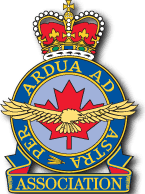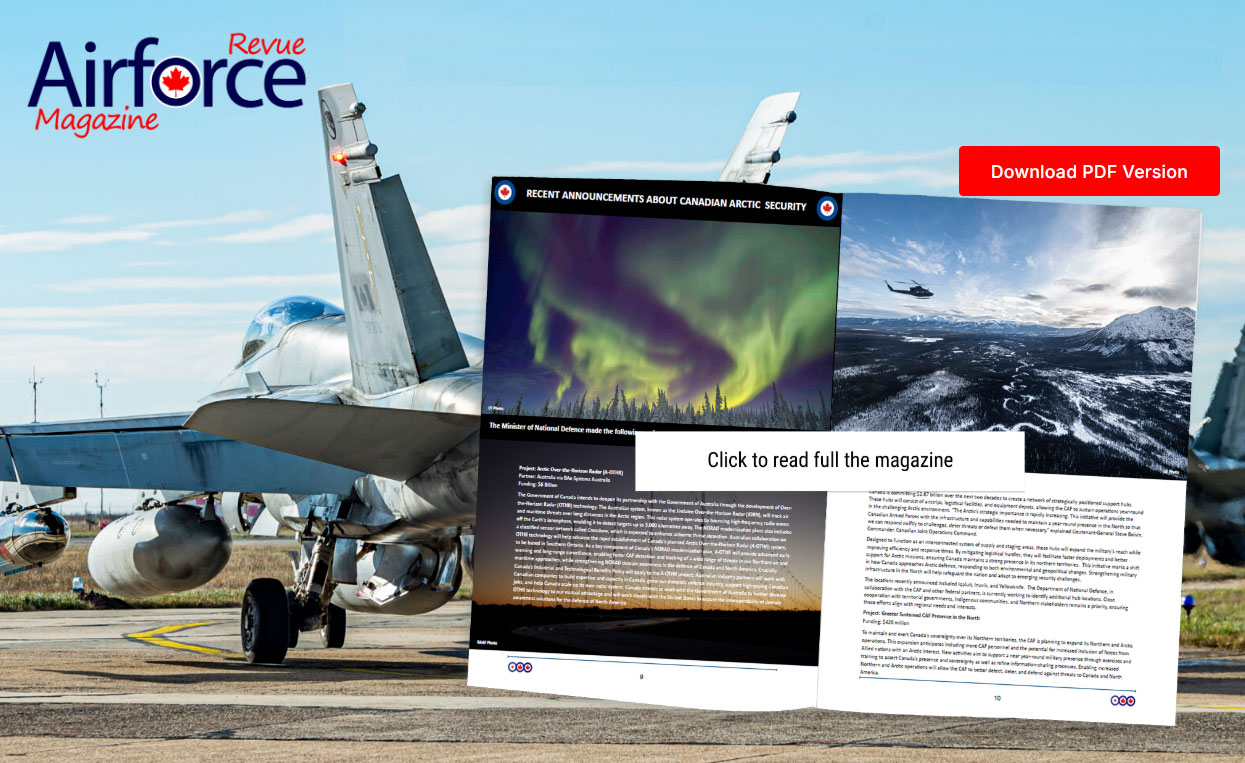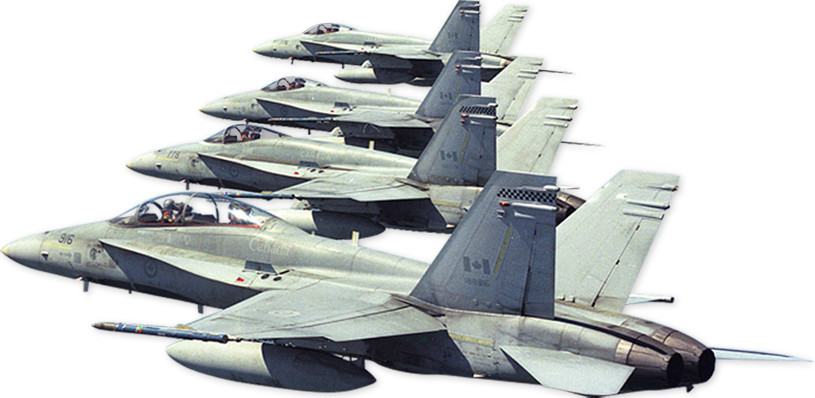Royal Canadian Air Force Association
Brief
Presented to the Prime Minister
October 11th, 1966
Contents
Aim – 2
Introduction – 2
Canadian Objectives – 3
The Organization of the Defence Forces – 4
Integration and Unification – 5
Service Morale – 7
Summary – 10
Conclusion – 12
RCAF Association Resolutions Passed at the National Convention, Edmonton – 15
R.C.A.F. ASSOCIATION BRIEF ON DEFENCE
AIM
One of the stated aims of the R.C.A.F. Association and one of the basic principles on which this organization was formed eighteen years ago is: “To support the maintenance of an adequate and efficient Air Force in Canada for the defence of our country.” The Association wishes to reaffirm this principle and urges that Canada maintain the best possible defence forces with the most effective weapons available.
INTRODUCTION
The members of the R.C.A.F. Association have maintained their interest in matters concerning the defence of Canada over a period of sixteen years. When we banded together soon after World War II, we, in common with all Canadians, were determined that we would do what we could to see that the world would not be plunged again into a cruel and devastating conflict. We believed at that time that the best insurance against war was the maintenance of strong defence forces by all who prized liberty and peace so that the ambitious and predatory would not be tempted to further their ambitions through the use of force.
The R.C.A.F. Association still holds this view. Furthermore, it believes that the need for a visable (sic) shield against aggression is as strong today as at any time in the history of mankind. It asks only that Canada not be found wanting in her contribution to the provision of the shield.
CANADIAN OBJECTIVES
No brief concerning the defence of Canada could be undertaken without reference to the “White Paper on Defence” published in March, 1964. That document laid down certain priorities for our Armed Forces, priorities that were based on an assessment of the tasks that the Armed Forces could be called upon to perform and which are consistent, presumably, with the foreign policy of our country.
The R.C.A.F. Association wishes to record its approval of the assessment on which the priorities are based and its satisfaction with the priorities them-selves. It particularly embraces the government’s reaffirmation of Canada’s support for the two military alliances in which she is a participant, NATO and NORAD, and for the UN, an organization which seeks peace
while the military alliances prevent war.
THE ORGANIZATION OF THE DEFENCE FORCES
It is true to say that any contribution that Canada can make to the defence of the free world is directly proportional to the efficiency and effective-ness of her Armed Forces. And the effectiveness of her Forces depends on a variety of factors; the calibre of those serving in them, the way they are trained, the weapons they are given and the pride they have in their service. All of these factors, in turn, depend upon the way in which the forces are organized.
The R.C.A.F. Association wishes to commend the government on its initiative in undertaking changes that will promote efficiency. It realizes that, as the Royal Commission on Government Organization pointed out, there are many elements in each service common to all three services for which the traditional basis of organization is unsuited, and for which the maintenance of three separate organizations is unwieldy and uneconomic. The R.C.A.F. Association agrees wholeheartedly that these common functions should be recognized and co-ordinated. And to the extent that integration has and will accomplish this, the plan receives the acclaim of all our members.
INTEGRATION AND UNIFICATION
Just as there are functions that are common to the three Services, there are many functions that are necessarily peculiar to each by virtue of the nature of the separate environments in which each must carry out its assigned tasks. It is the control of these functions under integration and unification that raises very serious questions in the minds of the members of the
R.C.A.F. Association.
The Association suggests that the degree of specialized knowledge required by the operational elements in each service is increasing rather than decreasing and that any attempt to merge these elements would of necessity drastically reduce the efficiency and effectiveness of each.
In the same way the Association cannot understand how intelligent decisions can be made for training and controlling these disparate elements by officers who, of necessity, will have spent many years attempting to perfect their knowledge of their own specialties.
The ‘White Paper’ on defence made particular point of the fact that “the decision-making process” would be simplified by the imposition of integration and unification. In this regard the R.C.A.F. Association would like to point out that past governments must accept a share of the blame for any weaknesses that manifest themselves in decisions that may have emanated from Defence Headquarters. Obviously the ability of the three services to decide wisely and perform effectively has been and is determined to a large extent by the sort of direction they receive from their political masters.
The R.C.A.F. Association believes that it is inefficient, even dangerous, to unify the command structure of forces in the field and put responsibility in the hands of those whose backgrounds render them incapable of making decisions based on personal experience. On the other hand, the R.C.A.F. Association finds it eminently reasonable that two services may very well work together under a single commander where the operational roles ful-fil the same purpose. This has been the case for some time in the field of ASW where the RCN and the RCAF have worked together harmoniously and effectively under SACLANT. Indeed, the history of combined operations in the last war is filled with examples of the “predominant partner” exercising control, while at the same time ensuring that the execution of any given plan was left in the hands of the specialists in their own environment.
The R.C.A.F. Association, therefore, believes that the operational training and control of each service should be left in the hands of the individual services.
SERVICE MORALE
The R.C.A.F. Association agrees with the “White Paper on Defence” that “esprit de corps” is associated with ships, or corps, or regiment, or squadron, as well as with the service. However, it fails to see how “worthwhile traditions” can be maintained in the face of complete integration and unification. Neither can healthy competition be maintained with a monolithic structure that will inevitably destroy the identities of the three services which have grown and proved themselves in the knowledge that they are recognized by their separate and distinctive roles.
Recently Mr. R.S. Malone of the Winnipeg Free Press in an excellent series of articles “Defence Forces Integration” referred to a speech by Eugene M. Zuckert, United States Air Force Secretary, to the U.S. Air Force Association when that body was considering advocating unification of the services for economy reasons. We support completely “throughout history, the majority of men have functioned most effectively as members of an identifiable group. This is particularly true of the military profession in which certain values are held superior to life itself. This spirit of unity – of brotherhood – is enhanced by tradition, pride in one’s organization and by the distinctive uniform which is the mark of membership. The value of “esprit de corps” cannot be measured with precision. No price tag can be put on it, yet we all recognize its intrinsic contribution in the quality of armed forces. Indeed, it is the heart, the basic ingredient of any true fighting force.
We should not tamper with that precious esprit de corps, that sense of identification, by immersing it in the vast agglomeration of a single service. ”
The R.C.A.F. Association feels, without wishing to be dramatic, that the type of man who should be attracted to the service and who might be called upon to undergo extremes of hardship and sacrifice is precisely the type of man who will perform best and be ready to serve most willingly if his imagination is stirred by past glories and past gallantry on the part of his combat-tested unit and service. The sort of pride that tradition fosters cannot be developed quickly, and should not be lightly cast aside in time of peace without considerable thought of the consequences.
It must be realized that a spirit of healthy competition between the services constitutes a strong incentive for them to improve themselves constantly. Unlike industry, the members of the services cannot be encouraged to excel by a desire for greater financial success alone. Canadians have reason to be proud indeed of the calibre of the men and women who have chosen to serve their country in its Armed Forces in peace and in war, frequent-ly at great financial sacrifice, because of the great traditions of their separate services. Loyalty to the Navy, or the Army, or the Air Force, has often been a father-to-son sentiment of immense value in attracting personnel and retaining them once recruited. The “born to the regiment” tradition has been in the past one of the strongest supports of Canada’s fighting forces, and should be fostered and encouraged, not destroyed by unification.
SUMMARY
The foregoing views and arguments of the R.C.A.F. Association may be summarized as follows:
1. The R.C.A.F. Association supports the integration of those functions of the Armed Forces that are more or less common to all services, but urges that the integration process be confined to Defence Headquarters and command formations in Canada.
2. The R.C.A.F. Association disagrees with any plan to unify the three services into a single service. Since it is admitted in the “White Paper” that the “specialist” roles must remain, the Association feels that far more would be lost than would be gained by diminishing the identity of each service. It emphasizes that experience shows that pride in service is a basic element of effectiveness, and that this pride cannot be maintained without true identity. Unification would turn the Armed Forces into just another Government department.
3. The R.C.A.F. Association supports the government’s re-affirmation of Canada’s support of NATO, NORAD, and the UN. However, it warns against the temptation for Canada to contribute less than her fair share of these alliances.
CONCLUSION
The R.C.A.F. Association presents this brief with the sincere aim of putting on record the well-considered opinions and expressed resolutions of the Air Force veterans in Canada.
The Association feels that the plans for integration and unification particularly have not been debated publicly to the extent deserved. In fact, the Canadian public has only heard the government’s arguments in favour of the process because by tradition, and because the civil power must dominate, the services have been unable to comment. The R.C.A.F. Association believes that there is more unrest in the services than can be gauged because of the imposed silence.
The R.C.A.F. Association urges that the process of integration be reviewed at its present level to
allow an honest re-assessment of its value and lessons to date that this review be conducted by an independent and impartial committee, possibly a Royal Commission. A pause would not be difficult in view of the fact that, as the “White Paper” suggests, there is no “blue-print” or a necessary time schedule. If either exists, the R.C.A.F. Association has not been able to elicit any information about them despite repeated requests.
Consequently, at its Annual Convention in Edmonton, Alberta last July, delegates from Wings of every province in Canada voted overwhelmingly to support the following resolutions:
1. That the identity of the three services in the Fighting Forces in the field should be maintained.
2. That the integration process be confined to National Defence Headquarters and command formations in Canada.
3. That Canadian National support of N.A.T.O. and N.O.R.A.D. continue with top priority.
We realize that defence is not considered as a vital issue by the Canadian public. We are comfortably sheltered under the wing of the U.S. forces and would be quite adequately defended at home if we had no defence force whatsoever. What we have to do as a nation to preserve our sovereignty and self-respect is a matter for the Government to decide, but regardless of the level of our defence effort, or the theatres in which it is proposed it be carried out.
Two guiding principles must be preserved:
1. The specialist expertise of fighting in each of the basic environments — land, sea, and air — be preserved and recognized in organization, career opportunity, and policy formulation.
2. That this expertise should be recognized as necessary at the highest military level and should contribute at that level to the formulation of military policy.
R.C.A.F. Association Resolutions Passed at the National Convention Edmonton, July 1966
1. That the identity of the three services in the Fighting Forces in the field should be maintained.
2. That the integration process be confined to National Defence Headquarters and command formations in Canada.
3. That Canadian National support of N.A.T.O. and N.O.R.A.D. continue with top priority.
We realize that defence is not considered today as a vital issue by the Canadian public. We are comfort-ably sheltered under the wing of the U.S. forces and would be quite adequately defended at home if we had no defence force whatever. What we have to do as a nation to preserve our sovereignty and self-respect is a matter for the Government to decide, but regardless of the level of our defence effort or the theatres in which it is proposed it be carried out.
Two guiding principles must be preserved:
1. The specialist expertise of fighting in each of the basic environments — land, sea, and air — be preserved and recognized in organization, career opportunity, and policy formulation.
2. That this expertise should be recognized as necessary at the highest military level and should contribute at that level to the formulation of military policy.








